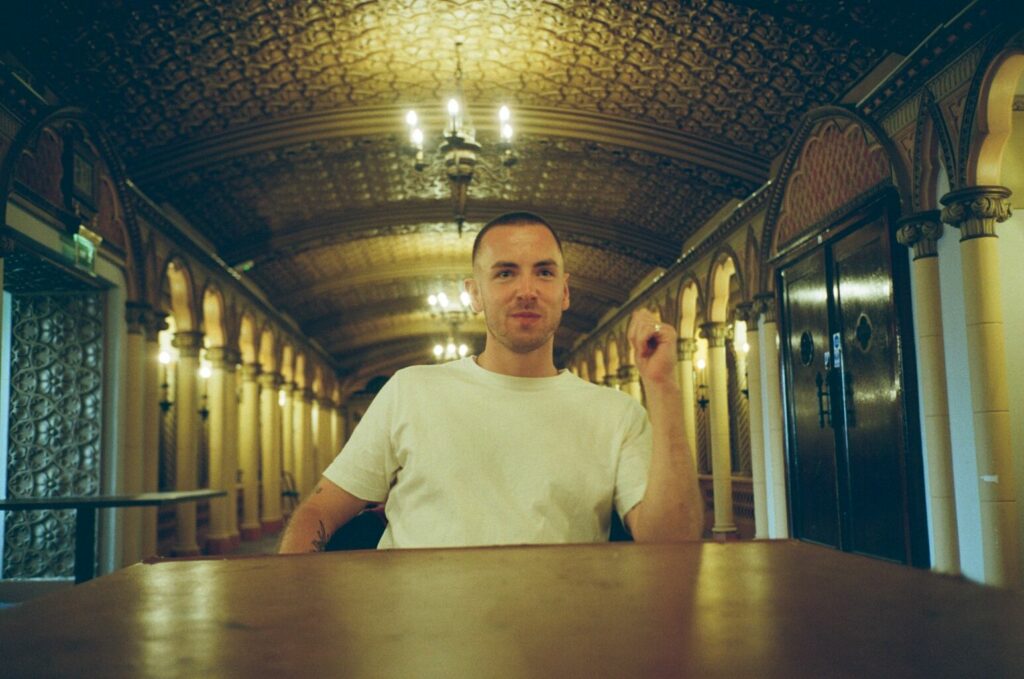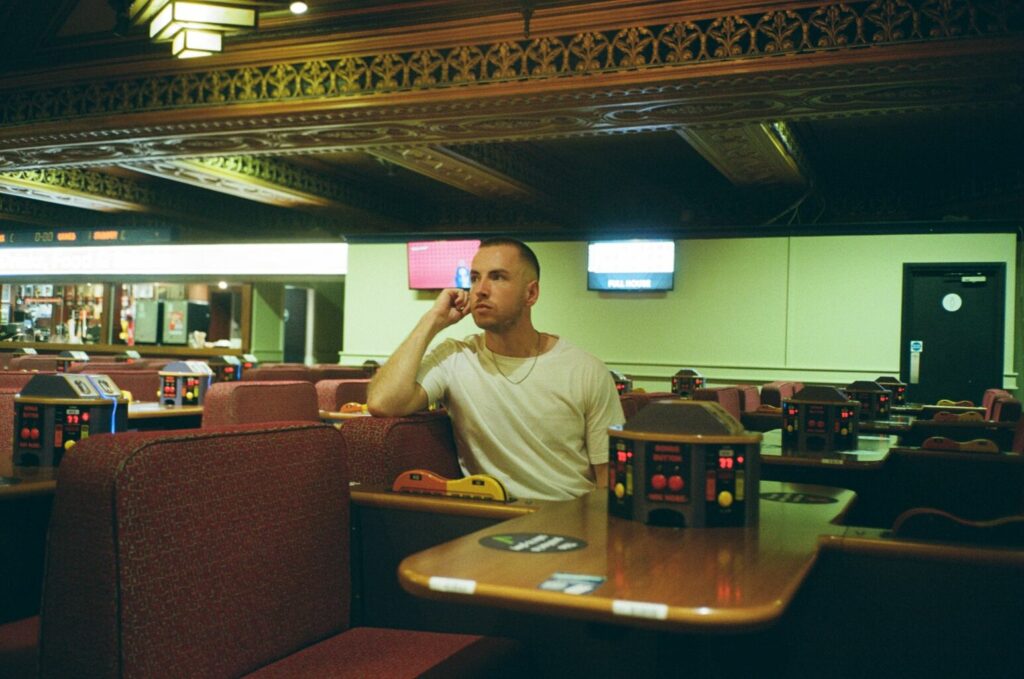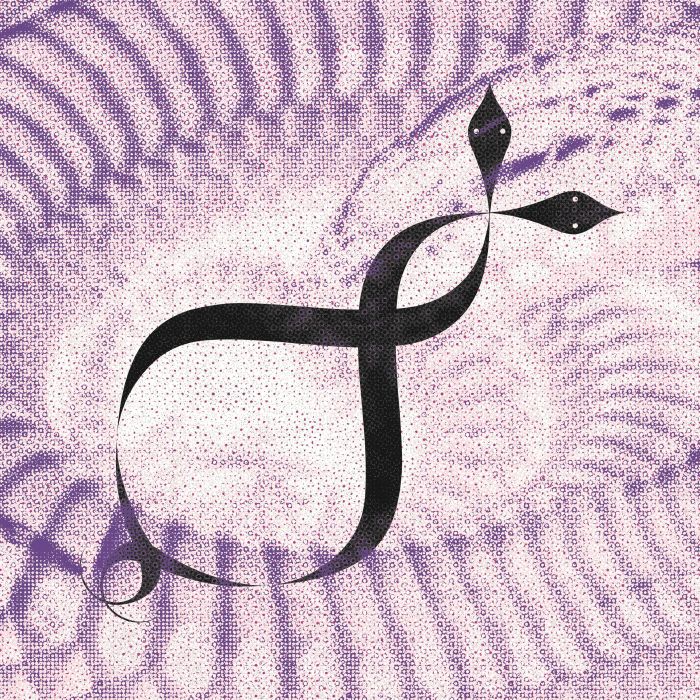Ploy interview: “No-one is bothered by your subtle panning in clubs”
Ahead of his newly launched label and night Deaf Test, we catch up with the London-based, drum-intrigued producer extraordinaire

Ploy’s music is a barrage of percussive, jilted reverence – positively haunted by the late ghosts of UK bass and techno, and peppered with international influences from baile funk to dancehall.
Reeling from monumental support for his early house singles like ‘Ramos’ and ‘Intrigued By The Drum’, he’s now got the worthy confidence to move on to the next stage of his career, never letting up. Deaf Test, the night which he’s been running at Bermondsey’s Venue MOT Unit 18 since 2020, has now launched its label arm, kicking off with three new tracks by the man himself, on the new ‘Rayhana’ EP.
Fascinated – more than intrigued – by the off-kilter rhythmic qualities of this EP’s lead track, we decided to track Ploy down for a rundown of his influences, his creative goals, and his thoughts on today’s club culture, centring on Deaf Test.
Deaf Test is named after your experience of having been deaf in one ear from a young age. Since you started making music, has this impacted your creativity, and if so, how?
To be honest it’s something i’ve been used to from a very young age. I can’t say it’s impacted my creativity at all. Technically though, it’s something that throws up some hurdles. It was always a bit of a joke between me and friends that for many years I would make music using just one KRK rokit. I’d essentially make music in mono because I could only use one ear anyway. In truth the other monitor broke and I never got round to getting it fixed; to be honest I didn’t really need it. The last record I wrote like that was Ramos. Since then i’ve bought two new monitors.
People often ask how I do things in the stereo field, but all of that is shown on visual readouts so it’s not that difficult to do half deaf, plus club tunes sound better mainly in mono anyway. No one is bothered about your subtle panning in clubs, most of the time you wouldn’t even notice when you’re half cut on a dancefloor.
It’s a bit annoying when it comes to DJing though, it takes a bit more concentration, and a perfect monitor setup is even more crucial when you’ve only got the one working ear.
Could you name some tunes by other artists you were listening to and inspired by, going into the making of this EP?
That was actually such a long time ago it’s hard to say. Going back through my Rekordbox for those months, though, it looks like U was playing a lot of baile funk-type edits and remixes. Quite high-energy music with vocals and tough beats, as well as Low Jack, DJ Jock Club, Net Gala, Krolik, Siu Mata – there was lots of stuff from them in those months. That would explain a lot as to why the EP turned out the way it did, especially 5G Bats. On the whole, though, over the past few years I’ve become less enthused by ‘UK bass’ music – when looking for new music it’s usually trawling through Bandcamp and finding more tracks from other countries. Finding stuff, that I’d imagine, is directly influenced by the UK but with a more original, localised take on it.
The lead track ‘Rayhana’ has a very jilted rhythm about it; the drum timing sounds slightly off-grid. Is this shifted rhythm intentional, and if so, what got you acting on it?
I’m always trying to come up with interesting grooves to stop tracks sounding too static or flat, and to encourage people to cut some experimental shapes on the dancefloor. Sometimes the more jilted / wonky beats can achieve that, without going overboard.
I wanted Rayhana to be quite sub heavy and swung with the beat and claps to have a bit more of a human, natural feel to match the vocals. It’s not actually the beat that’s off grid, that’s all tight on the grid. It’s everything else around it that’s a bit swung; the synth whomps, the vocal sample, the big reverb crashes, the sub stabs, percussion hits etc. Automating and moving all that around the track makes it sound more off kilter and adds movement around the static beat. I work in the box so trying to make music that sounds a little more fluid and natural / human is something I’m becoming more conscious of.

Deaf Test is a vehicle for your more personal works. What is it about the tracks on ‘Rayhana’ that relate them more to you as a person?
It’s more in the sense that I’m in control of every aspect of the process now, so every decision from the music to art to the press is related back to me. It’s a place for me to explore my influences with no restrictions or input unless I choose it. All these factors in itself make the whole process more personal.
As well as this though, the collaboration aspect which I’m working towards is me trying to inject an influence from other areas of music that I’ve always been interested in. Working with other musicians, vocalists, instrumentalists etc as opposed to sampling feels more personal and direct for me.
The Deaf Test night currently resides at Venue MOT Unit 18, a club which has gained a simmering reputation over the past few years, despite a seeming lack of recognition from the wider music press. Why did you go with MOT in the end?
Towards the end of 2019 I wasn’t really going out to clubs much in London. There was a distinct lack of venues that I was that interested in, as well as parties for that matter. MOT however was one of the few exceptions. It’s run by a team that is doing it for the right reasons and has interesting programming in a decent sized spot that’s conveniently close to my house. I’m not really sure if the music press have their ears to the ground with that stuff anyway, but I couldn’t say why it hasn’t been covered much (I can imagine that will probably change soon, though). For me it’s the best venue in London, even if at times I’ve been in danger of spending too much time there. There’s also a core crew of people (enablers) that you’ll usually find there; that little rave community is quite important. The personality of the place is definitely a direct representation of the personality of the owner – I think that’s what makes it unique and vastly different to other spaces in London, something you just have to experience from visiting.

With Deaf Test (both the label and night) being about meaningful collaboration, who do you have in mind to release and collaborate with in the future?
The plan is to do another longer project that I’ll release on Deaf Test. I want to work with instrumentalists, vocalists and other musicians to create something that’s a bit more of a departure from my other material. Once it’s fully in the works I’ll be able to shed some more light. As for the party I have lots of ideas for artists and themes to explore that I think could work well. It’ll be kept mostly under wraps, though, so people will have to come along to find out. Which is a risky – and some would say unwise – approach to a club night.
How do you ensure the main draw of the Deaf Test night isn’t headline names, but rather consistent quality?
I think by never announcing DJs until the party avoids that, mainly, but also the legitimacy of the venue in itself plays a big part in ensuring consistent quality. If I was doing this in a venue that puts on dodgy, shit headliners in order to pull in a bit of revenue, then people would be even less trusting of the club night. That, paired with, hopefully, a shared trust in my taste, may just be enough to keep people coming back. I want people to be able to hear DJs they may not know on some occasions, while at other parties be surprised that they’ve turned up on a night where it’s their favourite DJ playing. Whatever keeps them coming back. But hopefully overall, it’s the quality and the fantastic smoking area, bathing in an eerie green light.
The ‘Rayhana’ EP is out on January 29 – pre-order your copy here